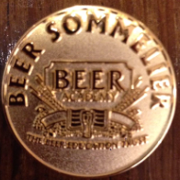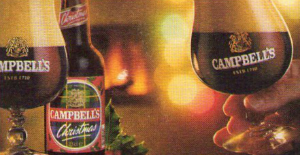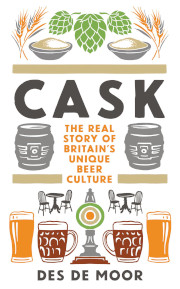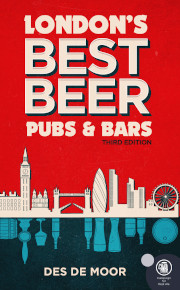ABV: 8.3%
Origin: Leuven, Vlaams-Brabant, Vlaanderen
Date: 26 March 2001
Another review from the archive written for the pioneering Oxford Bottled Beer Database (OBBD). I’ve left it uncorrected — so please read it in that historical spirit.
Campbell, Hope & King’s Argyle Brewery in Edinburgh’s Cowgate was founded in 1710 or before, and when it was closed by Whitbread in 1971, it was reported as being the oldest brewery in Scotland. Interbrew, one of the predecessors of today’s world’s biggest brewer, Anheuser-Busch InBev, acquired the brand through its long association with Whitbread, the brewing interests of which it bought outright in 2001. Interbrew seems to have discontinued this particular brand in the mid-2000s.
The Gordons-branded ‘Scotch’ ales, referenced below, are no longer brewed in Edinburgh for export, as their former home, McEwan’s Fountain Brewery, was closed by Scottish Courage (now Heineken) in 2005. Instead they’re brewed in Belgium at John Martin’s brewery at Genval, Brabant-Wallonie.
One of a number of products that satisfy the Belgian predilection for strong, malty ales in broadly the Scottish 90/- or wee heavy style. This quirk of Belgian taste, particularly pronounced in winter, allegedly dates from World War I, when Scottish regiments were stationed in the country. Some brews in this style are made in Scotland for export, often in stronger versions than are generally available in the UK, but this is one of a number that are now brewed locally.
It’s a product of Interbrew’s vast Den Hoorn brewery in Leuven, but, as proclaimed on the label, is brewed ‘under the supervision of Whitbread plc, London’, an arrangement that long predates Interbrew’s takeover of the British megabrewer: presumably Campbells was a Scottish brewery that was long ago taken over and closed by Whitbread, and certainly the brand is no longer familiar in the UK domestic market.
The beer, which is not bottle conditioned but still very lively and was already past its best before date when consumed, is a very dark ruby with a notably rich aroma featuring glacé cherries, marzipan, cake and leather. The palate is also very full with cake and marzipan and burnt dried fruit, but also a cherryish sourness and a warming whisky-like whiff of alcohol.
A smoky, slightly chocolatey bitterness emerges in a rich finish, with petally notes developing as the beer settles. Given all this, my rating may seem ungenerous but there’s something missing here: for all its richness, the beer seems strangely bland, especially when compared to genuinely Scottish examples like Gordons Highland Scotch (brewed in Edinburgh by Scotco/Kronenbourg. Nonetheless, worth lingering over on a winter evening.






Leave a Reply